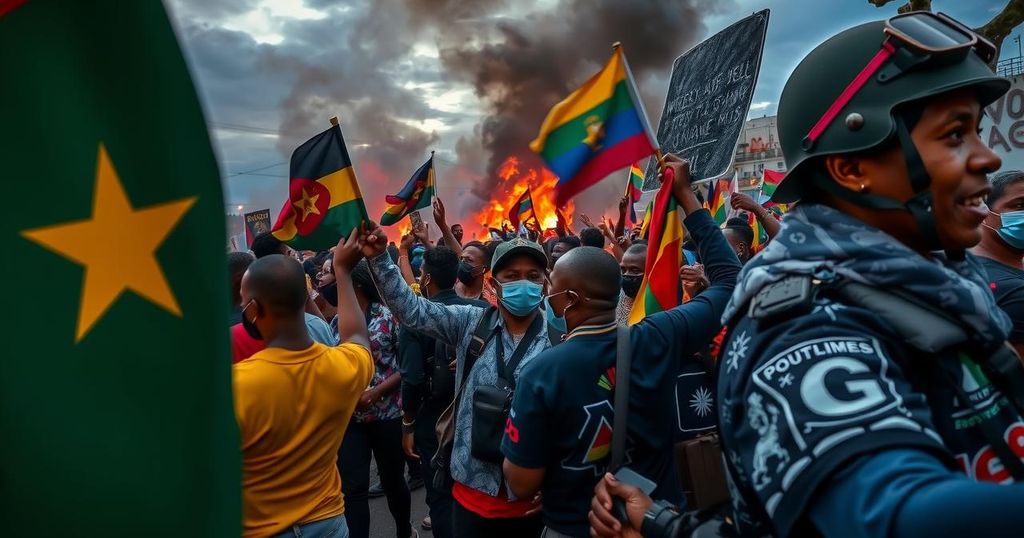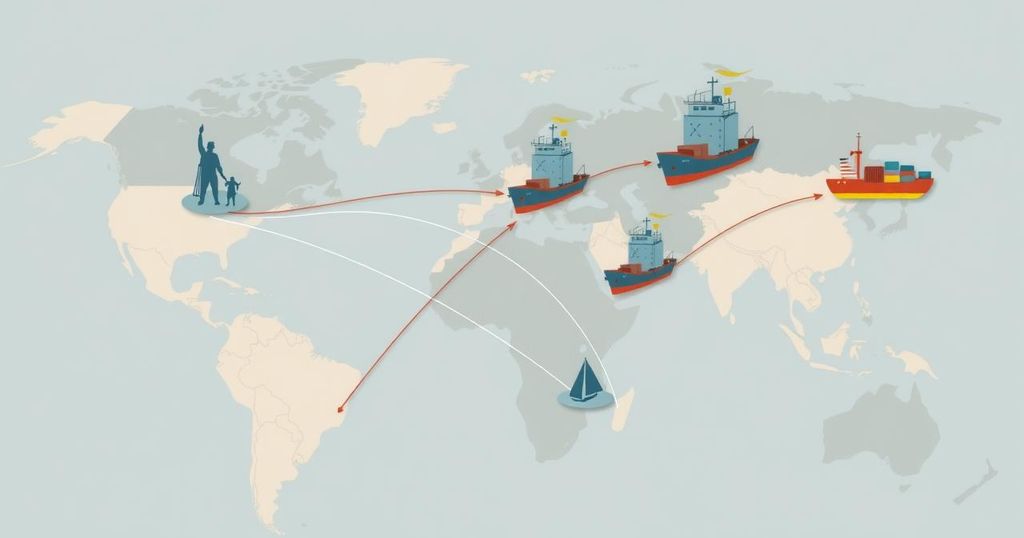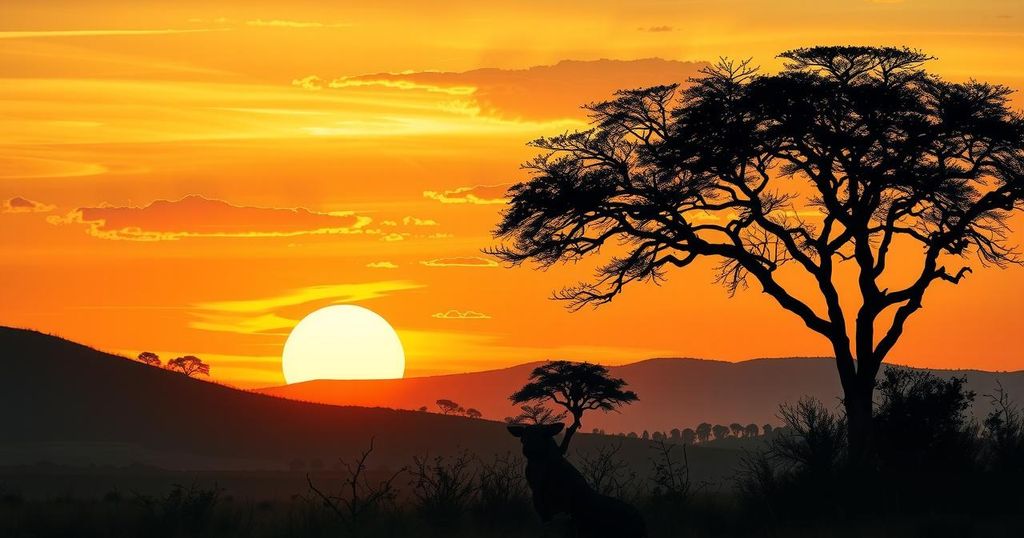Social Media Restricted in Mozambique Amid Protests Over Contested Election Results
Social media access in Mozambique has been curtailed following opposition calls for a nationwide strike in response to disputed election results announced on October 9. The London-based watchdog NetBlocks confirmed the blockage of major platforms such as Facebook, WhatsApp, and Instagram amid escalating protests and reported violence. The electoral commission proclaimed Daniel Chapo the victor with 71% of the votes, although opposition leader Venancio Mondlane disputes the validity of these results, leading to demonstrations across the country. Human Rights Watch cites significant casualties during the unrest, with police warning against potential acts of sabotage prior to the planned protests.
Mozambique has experienced a significant disruption in social media services coinciding with opposition-led calls for a nationwide strike in response to contested results from the general elections held on October 9. According to NetBlocks, a global internet monitoring organization, access to popular platforms such as Facebook, WhatsApp, and Instagram was severed early on Thursday. “We can confirm that social media restrictions have been imposed in Mozambique amid calls for a nationwide strike. People are unable to access social media,” stated NetBlocks, emphasizing the extent of the restrictions. This measure follows a temporary internet blackout that was enforced shortly after the electoral commission announced its results, which sparked violent protests. NetBlocks reported a severe disruption of mobile internet connectivity in Mozambique during this period. Around 17 million registered voters participated in the elections, which included selecting a new president alongside parliamentary and provincial governor seats. On October 24, the Frelimo party’s Daniel Chapo, aged 47, was declared the electoral victor with 71% of the votes, while his opponent, Venancio Mondlane, received 20%. Following the announcement, Mondlane has led protests challenging the election outcome. Thursday marked the initiation of a weeklong strike throughout the nation. Human Rights Watch reported that at least 11 individuals lost their lives and over 50 sustained injuries amid the unrest stemming from the election on October 24 and 25. In anticipation of the planned protests, law enforcement issued warnings on Wednesday evening, urging citizens to refrain from engaging in any acts of “sabotage.”
The current unrest in Mozambique is rooted in the recent general elections held on October 9, where results were disputed by opposition parties. The elections aimed to elect a new president, as well as members of parliament and provincial governors. Daniel Chapo from the governing party, Frelimo, was announced as the victor, which spurred protests as opposition leaders rejected the legitimacy of the results. Human Rights Watch has documented a troubling pattern of violence in the aftermath of the elections, including fatalities and injuries among citizens. In response to growing civil unrest, the government has taken measures such as internet shutdowns and social media restrictions to suppress dissenting voices.
The situation in Mozambique illustrates the tension between governmental authority and civil liberties, particularly in the context of disputed electoral outcomes. The enforcement of social media blackouts raises concerns about the right to free expression and the ability of citizens to organize politically. Additionally, the reported violence and suppression of protests underscore the dire implications of such political strife on the social fabric of the nation. The calls by opposition figures for widespread demonstration reflect a significant public discontent with the election results and the prevailing political landscape.
Original Source: www.aa.com.tr




Post Comment